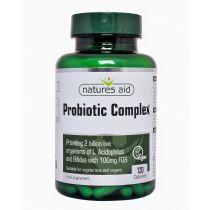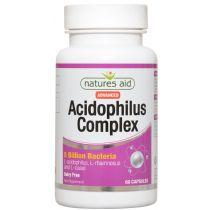A quick guide… to Digestive Health

The digestive process begins as soon as we start to chew our food. In the mouth, stomach and intestines, digestive enzymes break down the food consumed into minute pieces, allowing the nutrients to be passed into the bloodstream. Several factors can cause this process to become less efficient and sometimes we need a little help.
The Digestive Process
Enzymes and probiotic bacteria (AKA “the friendly one”) both play an essential role in maintaining our health – because virtually every biochemical activity that takes place within the body and digestive process require their presence.
Life as we know it could not exist without the action of enzymes – even in the presence of sufficient water, vitamins, minerals and amino acids. Enzymes are essential. They act as catalysts in life processes, accelerating reactions to the speed required to maintain life. When enzyme levels are low reactions are slowed down to such a degree that the body begins to suffer.
The human digestive system also contains billions of live intestinal bacteria – a mix of some good and some potentially harmful strains. The good bacteria help to alter the balance of the intestinal microflora in a positive way; inhibiting the growth of harmful bacteria, promoting good digestion, boosting immune function and increasing resistance to infection.
Why do we suffer digestive disorders?
A number of factors affect our digestive health:
- Stress. We are more stressed due to modern lifestyles.
- Fast Food. We eat our food at a rapid rate, often on the go.
- Diet. We consume vast quantities of processed meats, refined grains, ultra pasteurised and difficult to digest dairy.
- The foods we consume also tend to be devoid of enzymes and create an acid environment in the intestines – leading to infection, yeast overgrowth, and a weakened immune system.
- We consume far too many foods that are frozen, dried, irradiated, loaded with preservatives, colours and flavours, and covered in pesticides.
- Cooking habits. We destroy many of the enzymes in our food by cooking, and as a consequence our bodies have to provide all the enzymes to break the food down.
- Age. Beneficial bacteria and digestive enzyme levels decline with age, and also as a consequence of using certain prescription medications – including antibiotics.
- Travel. Travelling abroad often upsets the digestive system and can lead to what is commonly referred to as ‘traveller’s tummy’.
What can we do?
Step one is to improve our diet. But often, this is not enough. Using a digestive enzyme supplement is advisable for individuals suffering with digestive disorders.
Digestive enzymes break the various food groups into progressively smaller components. Digestive enzyme supplements can increase the level of digestion in the stomach, increasing the amount of food broken down. This leads to less undigested food entering the colon, and allows the nutrients from the food to be more readily absorbed.
Top Tip: When choosing a digestive enzyme supplement, look for a product containing: Amylase (for the breakdown of carbohydrates); Lipase (for fat breakdown); Protease (for protein breakdown); Cellulase (for cellulose breakdown); and Lactase (for dairy breakdown). These are five of the most important enzymes the body needs for digestion. Lactase is particularly important, due to the high levels of dairy intolerance within the population.
Betaine Hydrochloride is also important, as it can raise levels of hydrochloric acid – the primary digestive aid in the stomach for protein breakdown. Low levels of hydrochloric acid in the stomach are a common cause of discomfort.


